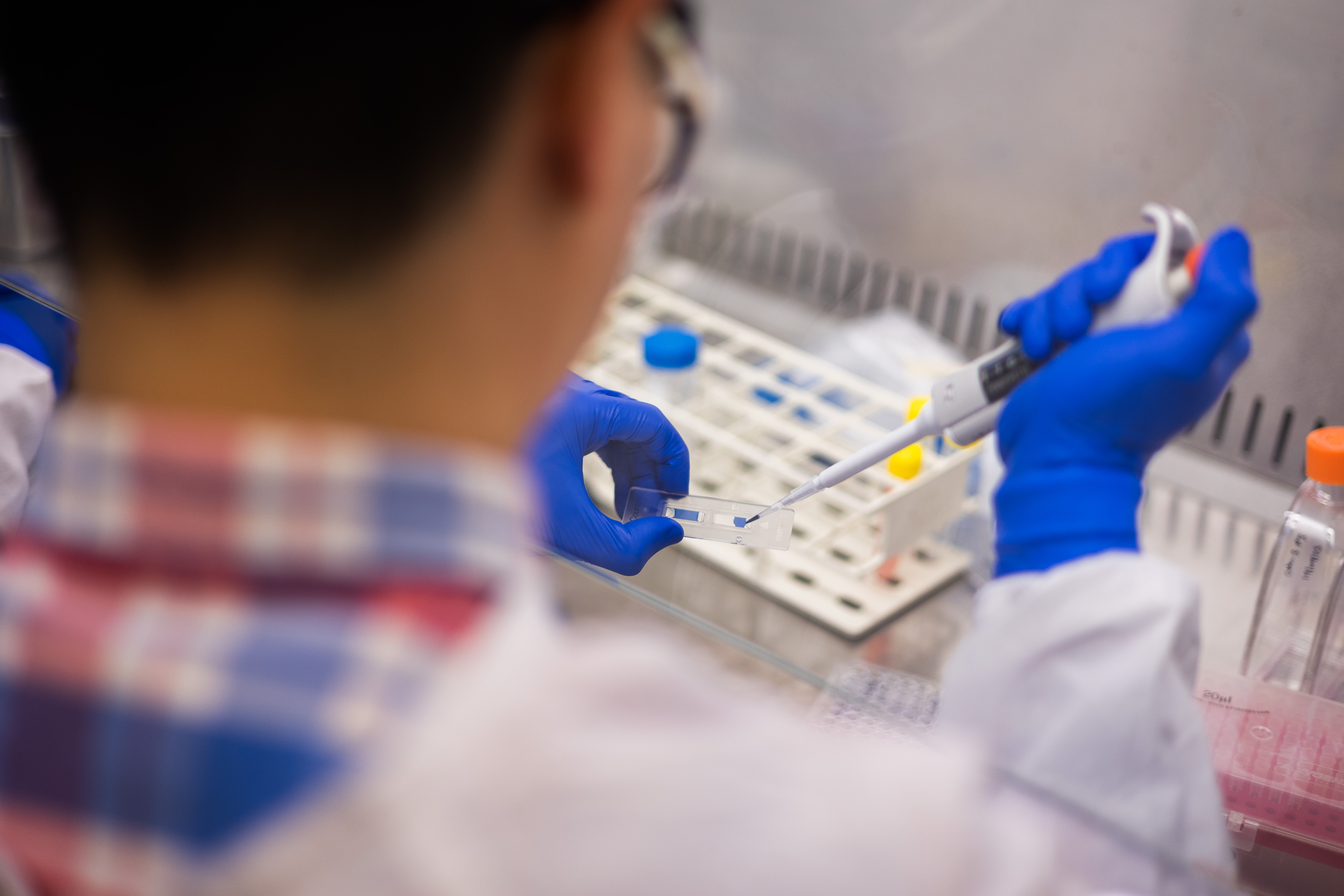Researchers awarded $36m funding from MRFF for projects across health and science

Researchers from the University of Melbourne have been awarded over $36 million in funding from the Medical Research Future Fund (MRFF) to advance a wide range of health projects across areas including oncology, youth mental health, multi-omics (the biological study of cells which includes genomics, proteomics, metabolomics), treatments for diabetes and obesity, determining cardiovascular disease risk among Indigenous Australians and potential treatments for long-COVID.
Reflecting on the high number of successful grant recipients, Dean of the Faculty of Medicine, Dentistry and Health Sciences Professor Jane Gunn said:
“Congratulations to all the grant recipients. I deeply appreciate the effort involved, from codesigning innovative research programs that address the health needs of our community, to creating incredible learning opportunities for our students and early-career researchers. These projects will undoubtedly strengthen our world-leading health and biomedical ecosystem through collaboration with our partners and consumers. I look forward to seeing these projects develop and make an impact in the years to come.”
Projects funded:
- Professor Olivia Carter, Melbourne School of Psychological Sciences, awarded $6,998,210 for OMIX3: High-capacity integrated multi-omics. This project will establish an integrated high-throughput, multi-omics facility, termed OMIX3, for processing clinical samples, from point of collection and biobanking, through to comprehensive, proteomic, metabolomic and lipidomic analysis on parallel mass spectrometry (MS) platforms, and data storage/sharing.
- Dr Lincon Stamp, NHMRC Research Officer, awarded $6,509,101 for Treating tiny tummies: Next generation cell therapies for paediatric gut disorders. This project aims to accelerate the development of a safe and effective stem cell-based therapy to restore gut function in these vulnerable patients.
- Dr Christopher Bye, Florey Department of Neuroscience and Mental Health, awarded $4,999,238 for Accelerated drug discovery using population wide screening of patient iPSC’s for MND. This research program aims to implement drug screening technology at an unprecedented scale seeking to rapidly and accurately discover new treatments for people with Motor Neuron Disease (MND).
- Professor Sarah-Jane Dawson, Sir Peter MacCallum Dept Oncology, awarded $2,998,333 for Harnessing the next generation of liquid biopsy assays for clinical translation in breast cancer. This research will focus on the development, validation and implementation of the “next generation” of liquid biopsy assays to improve clinical care for patients with breast cancer, including those living in remote and regional areas so that precision medicine guided care can be achieved on a national scale.
- Dr Dominic Dwyer, Centre for Youth Mental Health, awarded: $2,997,208 for Youth AI: infrastructure for the next generation of youth mental healthcare. The project will establish governance, services, networks, and systems to translate late-stage AI tools to national services, via clinical trials.
- Professor Andrew Thompson, Centre for Youth Mental Health, awarded $2,993,285 for Enabling early psychosis research via a national clinical quality registry. This project will address the area of unmet healthcare need of early psychosis. Psychotic illnesses such as schizophrenia are a major cause of premature mortality and disability in Australia and globally as well as a significant financial societal burden.
- Professor Kelsey Hegarty, General Practice and Primary Care, awarded $2,638,297 for Promoting Safer Families: Strengthening primary care to sustainably address domestic and family violence. This project will involve generating new knowledge from a world-first trial of resourcing primary care to respond to this chronic social problem.
- Professor Bernhard Riedel, Sir Peter MacCallum Department Oncology, awarded $2,913,279 for Predicting and Reducing Complications After Surgery with AI: PRECAST4. The platform developed in this project will provide clinicians with individualised, evidence-based best practice advisories and care plans to identify and support patients at high risk of complications.
- Professor Sandra Eades, Faculty of Medicine, Dentistry and Health Sciences, awarded $1,975,020 for Premature risk meets system failure: understanding, detecting and managing cardiovascular disease (CVD) risk among Indigenous Australian children, adolescents and young adults. This Aboriginal-led, community-driven project responds to community concerns regarding premature CVD risk, including as a driver of mid- and later-life CVD.
- Dr Barbara White, Baker Department of Cardiometabolic Health, awarded $1,000,000 for Unlocking the potential of novel therapies in treating diabetes and obesity. The project objective is to evaluate the viability of messenger ribonucleic acid (mRNA) therapies as a prospective strategy for managing diabetes and obesity.
- Professor Jon Emery, General Practice, awarded $249,757 for OUTcomes POST COVID - Australian Platform Trial (OUTPOST-APT). This study will continually review emerging evidence on long COVID and, with clinicians and consumers (First Nations, ethnically diverse and rural communities, and those living with long COVID), prioritise treatments for further testing and co-design a feasible adaptive platform trial ready to rapidly test these treatments in the next stage.